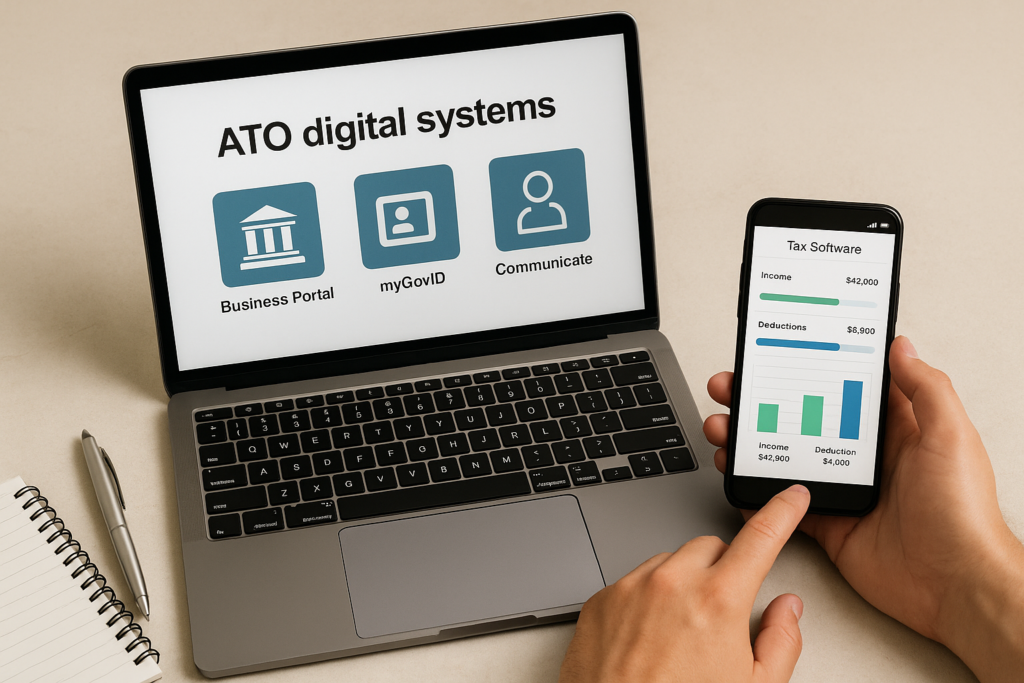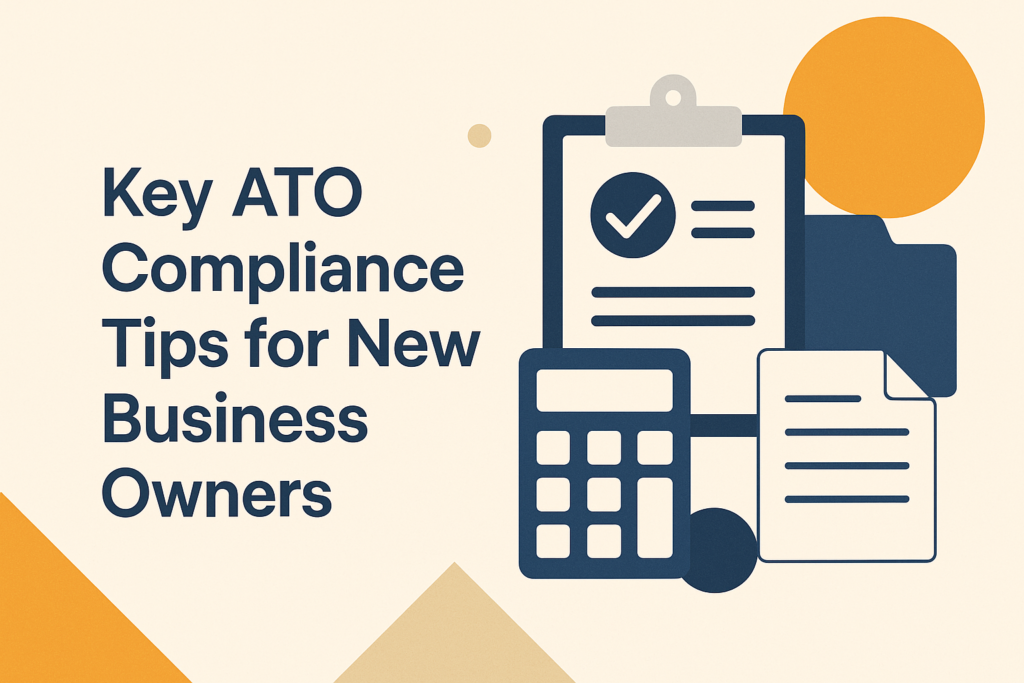An Australian new business venture is not all about drive and imagination. It also means having a solid understanding of your taxation. From registering your business in the correct manner to lodging your first tax return, the Australian Taxation Office (ATO) has stringent compliance requirements that you will need to adhere to. Having them running right away will save time, dollars, and headaches as you launch your business.
Registering Your Business the Right Way
One of the first things you need to do in ATO compliance is to have your business structure correctly registered. Sole trader, partnership, trust, or company, all with different requirements. You will also need an Australian Business Number (ABN), and depending on your estimated turnover, Goods and Services Tax (GST) registration might be compulsory.
Proper registration paves the way for a compliant future. If you are uncertain about the best structure to serve your needs, consulting an experienced accountant will clear up any uncertainty.
Keeping Records from Day One
Good bookkeeping is a mandatory requirement which should not be put off. Every transaction, since your business began, matters. Bank statements, invoices, and receipts should be retained for five years or longer. They are the foundation of your accounts and tax returns.
Apart from meeting compliance needs, correct record-keeping gives a clean picture of the finances of an organisation and thus enables proper cash flow forecasts and enables good decision-making. A cloud-based accounting system has the potential to make it easy to do it right from the start.
Understanding Taxable Income and Deductions
It’s crucial to know what income is taxable and which deductions you can legitimately claim. This includes income from business activities, investment returns, and even one-off sales. Deductible expenses can include marketing, business travel, software subscriptions, and professional services.
For example, if you’re working with custom home builders and engaging them in a development project, associated costs may be deductible, depending on the nature of your business and whether the build is classified as an income-producing asset. Always seek professional advice to confirm what’s claimable.

Staying on Top of BAS and PAYG
If your business is registered for GST, you’ll need to lodge a Business Activity Statement (BAS) either monthly, quarterly, or annually. BAS submissions include reporting on GST collected and paid, as well as Pay As You Go (PAYG) instalments or withholding if you employ staff.
Missing BAS deadlines can lead to penalties, so it’s worth setting automated calendar reminders or using accounting software that prompts you ahead of time.
If your business operates a Wollert childcare centre, for instance, your payroll and staffing obligations will likely include PAYG withholding and superannuation contributions. The sector’s compliance responsibilities can be complex, especially with changing workforce arrangements, so tailored tax advice is highly recommended.
Managing Fringe Benefits and Depreciation
Understanding fringe benefits tax (FBT) is also key if you provide perks like company vehicles or accommodation. These benefits must be reported and taxed appropriately. Additionally, capital assets you purchase may be eligible for depreciation deductions over time.
An Airbnb furniture package used to furnish a short-stay rental property may fall under depreciable assets. If the property generates income, you may be able to claim a portion of the cost over several years under ATO depreciation rules. Consulting with a tax professional ensures you’re applying the correct treatment and maximising your deductions within legal boundaries.
Use Technology to Your Advantage
ATO digital systems, including the Business Portal and myGovID, make it easier for new business owners to manage their obligations. You can view statements, lodge returns, and communicate with the ATO online. But technology is only useful if it’s implemented well.
Tax software that integrates with your bookkeeping system can ensure your reporting is accurate and timely. Many of these platforms also help identify deductible expenses automatically, giving you a head start on tax time preparation.

Final Thoughts
ATO compliance isn’t just about avoiding penalties — it’s about establishing good habits that allow your business to thrive. By staying informed, organised, and supported by professionals, you’ll be better positioned to meet your obligations and seize opportunities.
At Taxology Accountants, we help Australian business owners navigate the complexities of tax with ease. Whether you’re just starting out or growing rapidly, our team ensures you’re set up for success. Learn more about how we can support your business via our services page.
For broader information on ATO guidelines and starting a business, visit the Australian Business Register for official resources.
Ready to simplify your tax compliance? Contact Taxology Accountants today and let’s make tax work for your business.

